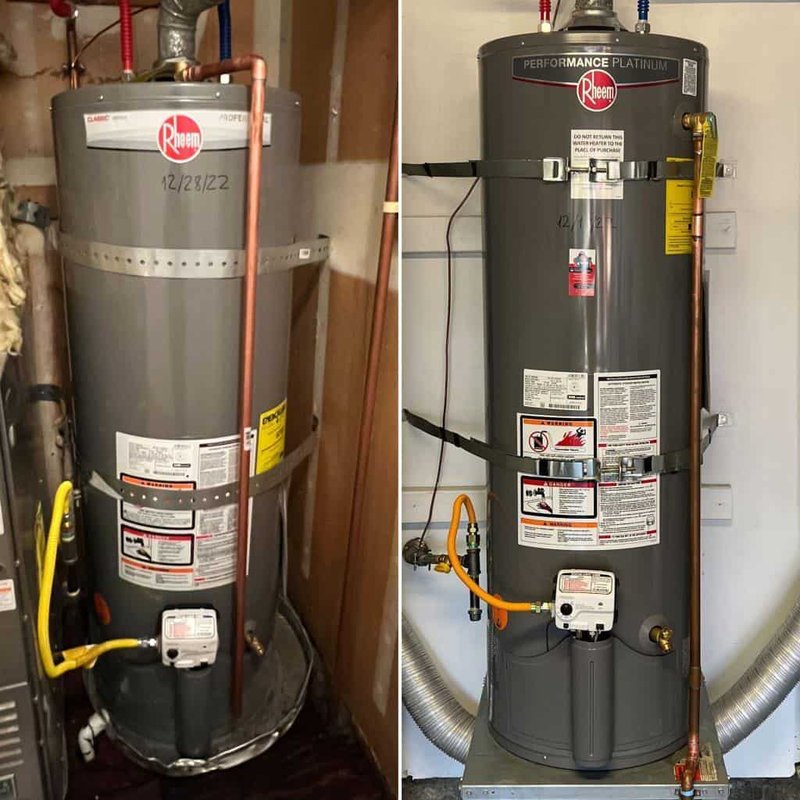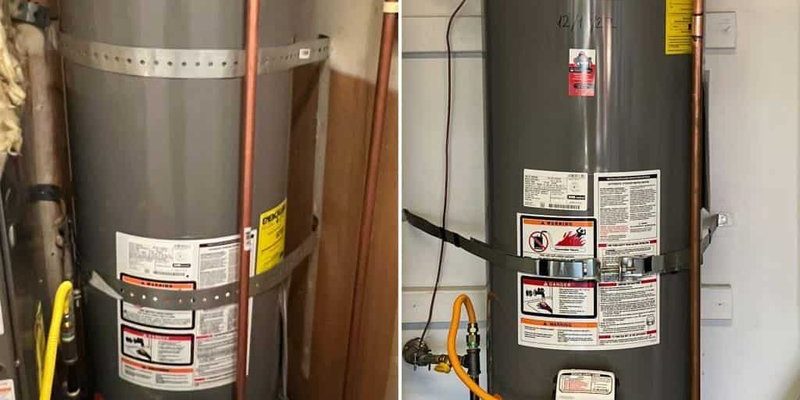
If you’re scratching your head over whether tenants can register AO Smith water heaters bought by a landlord, you’re not alone. This question comes up all the time, especially when it’s time to sync up warranty coverage or troubleshoot issues. The process feels a bit like borrowing someone else’s car—what are the rules? Who’s responsible for what? Let’s break it all down so you know exactly where you stand, what steps you can take, and why this little piece of paperwork might matter more than you think.
How AO Smith Water Heater Registration Works
Let me explain how water heater registration usually goes. When you buy a new AO Smith water heater—whether that’s gas, electric, or tankless—there’s a chance to register it with the company. This means you give them details about when and where it was installed, and they keep it all on file. In return, you usually get access to warranty services and sometimes extra resources, like troubleshooting codes or pairing guides for smart features, if your unit has them.
Now, here’s the thing: AO Smith (and brands like it) mostly expect the *owner* of the water heater to handle registration. That’s typically the person or company who paid for it. When you’re a tenant, you’re not technically the owner—you’re the user. This creates a gray area.
The registration form often asks for the purchaser’s name, installation date, and sometimes proof of purchase. If you try to register a water heater you didn’t buy, AO Smith might accept your details for contact purposes, but the warranty and ownership history usually sticks with the landlord. So, while you can fill out the form, it’s not always clear-cut that you, as the tenant, gain official status.
Why Registration Matters for Tenants and Landlords
You might be wondering, “What’s the big deal with registering a water heater, anyway?” Registration isn’t just a formality. It can actually make a difference when things go wrong—like if there’s a leak or the heating code flashes a warning.
For AO Smith water heaters, registration links the unit to a specific *warranty*, which covers repairs, parts, or replacement if something breaks. If your landlord didn’t register the heater or never passed along the paperwork, you could face delays when you try to sync up with customer service or schedule a repair.
Here’s why registration matters:
- Troubleshooting: If your water heater throws a mysterious error code, AO Smith’s tech support likes to see the unit’s registration. It helps them confirm your model, installation date, and warranty details.
- Warranty claims: This is a big one. To start a warranty claim (resetting, repairing, or even replacing your unit), you usually need to prove the heater was registered, or show purchase/installation info that matches their system.
- Battery or part replacements: For heaters with digital controls, registration might unlock faster access to technical manuals or parts pairing information.
So, while the registration might feel like boring paperwork, it often makes a big difference if you ever need real help.
Tenant Rights and Limits: Who Can Actually Register?
Okay, now for the nitty-gritty. Can a tenant go ahead and register their landlord’s AO Smith water heater?
Generally, manufacturers like AO Smith prefer the *purchaser or property owner* to register the product. That’s usually the landlord, building manager, or whoever paid the bill and hired the plumber. The logic is simple—the owner’s responsible for maintaining and repairing the unit, so the warranty coverage should follow them.
But what if your landlord skips it, or you just want to make sure the heater’s covered? Some tenants try registering anyway, hoping to pair the appliance with their contact info “just in case.” Sometimes, AO Smith’s online form will let you fill in your own name as the contact, but the warranty itself remains attached to the first owner (i.e., your landlord).
There’s a catch, though: If you put your own email or phone number on the registration, you’ll likely get any troubleshooting updates or recall notices. But if warranty work is needed, expect AO Smith to ask for proof of purchase or landlord approval.
So, even though you can sometimes register “in your name,” the legal coverage and perks don’t fully transfer. It’s kind of like putting your name on someone else’s mailbox—it lets you see the mail, but you don’t really own the box.
What To Do If You Need Warranty Service as a Tenant
Let’s say your AO Smith unit starts acting up—maybe it won’t reset, or you can’t get it to sync with your smart home remote. As a tenant, your first move should be to contact your landlord or property manager. They’re the ones who technically own the heater, hold the purchase info, and can deal with the warranty or repair process.
Here’s a simple breakdown of what to do:
- Tell your landlord about the problem right away. They might already have the warranty on file or know exactly how to get a technician out.
- Ask if the heater was registered. If it wasn’t, ask if they can handle the registration or help you fill out the form together (sometimes AO Smith asks for proof of purchase or installation photos).
- If you must call AO Smith yourself, be honest about your situation. Explain you’re the tenant, but you have the serial number and location. They may still guide you through basic troubleshooting or connect you with local service.
- If you need quick fixes, check the user manual for error codes or battery instructions—the basics often don’t require registration.
Bottom line: The landlord is your partner here. Don’t try to go around them—most companies (and, honestly, most warranties) require the property owner’s approval anyway.
Comparing Tenant Registration: AO Smith vs. Other Brands
You might be curious whether this “owner must register” rule is unique to AO Smith, or if it’s the same across the board. Most major water heater brands—think Rheem, Bradford White, or even hybrid models—follow a similar pattern. Whoever pays the bill and owns the building is expected to register and hold the warranty.
There are a few exceptions, though. Some new smart water heaters let *users* (not just owners) create an online account to monitor performance or troubleshoot with an app. But even then, when it comes to warranty claims or major service issues, they still want the owner or landlord to step in.
Here’s a quick comparison:
| Brand | Who Registers? | User Perks? | Warranty Control? |
| AO Smith | Owner/Landlord | Some app features for users | Owner/Buyer only |
| Rheem | Owner/Landlord | Smart alerts for users | Owner/Buyer only |
| Bradford White | Owner/Landlord | Limited | Owner/Buyer only |
So, no matter the brand, the “owner registers, tenant uses” pattern is the norm for water heater registration.
Workarounds and Tips for Tenants
If you’re a tenant who wants to stay in the loop about your AO Smith water heater, here are some practical tips:
- Ask for the model and serial number. Having this on hand makes troubleshooting easier—no need to wait for the landlord to respond if you just need a manual or reset instructions.
- Request the original purchase paperwork. It’s reasonable to ask for this if you ever need to call AO Smith about an urgent problem—just be sure to return it.
- Suggest joint registration. Some landlords don’t mind adding a tenant’s contact info as a secondary point of contact. That way, you get alert emails or app notifications, but the warranty stays with them.
- Understand what you control. You can usually change batteries or reset digital panels, but big repairs or replacements generally require landlord approval anyway.
Think of yourself as the “driver” of the water heater, while your landlord remains the “owner.” You keep it running day-to-day, but big decisions and paperwork are their job.
What Happens If the Water Heater Isn’t Registered?
Let’s be real—sometimes the water heater never gets registered at all. What’s the fallout if nobody fills out that form?
First, don’t panic. Most AO Smith water heaters still come with a manufacturer’s warranty by default, based on the installation date and serial number. Registration just makes claiming it smoother. If something breaks, AO Smith will often ask for proof of purchase or installation (like an invoice or inspection report). This is where having a cooperative landlord really pays off.
If you can’t find that proof, warranty service might be denied, or at least delayed while everyone hunts for paperwork. Unregistered units can also miss out on recall alerts, updated troubleshooting guides, or remote app controls for smart models.
So while registration isn’t always required, it’s a “better safe than sorry” move—for both owners and the tenants who depend on hot water daily.
The Bottom Line: Teamwork Between Tenants and Landlords
Honestly, the best approach is teamwork. Registering an AO Smith water heater as a tenant is possible in a limited way—you can try, and sometimes you’ll get helpful updates or troubleshooting tips. But for the real power moves (like warranty repairs, code resets, or battery replacements), the landlord needs to be looped in.
If you’re a tenant, start by talking to your landlord. Make sure the unit is registered, paperwork is in order, and you’ve got the info you need for day-to-day fixes. Keep things clear and cooperative, and you’ll avoid cold showers or stressful phone calls when things go sideways.
Living with appliances you didn’t buy can be a little weird, but with the right communication—and a bit of paperwork—everyone benefits. And hey, you’ll sleep better knowing your hot water and warranty are both in good hands.
